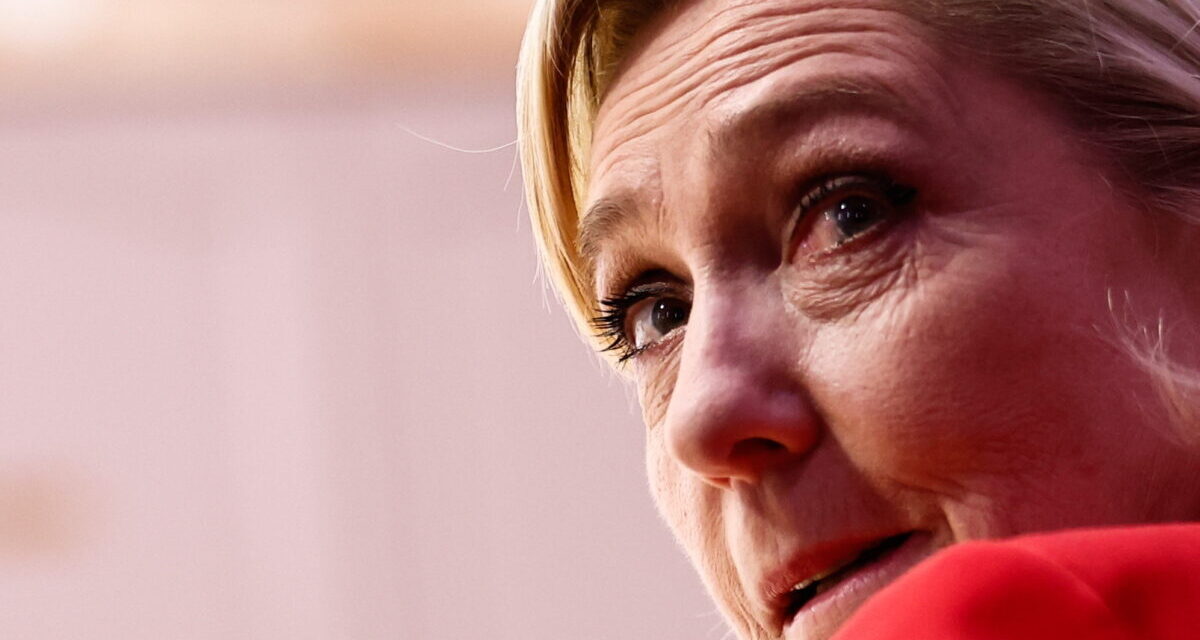The first round of the early National Assembly election will be held in France on Sunday. Two things are certain: Le Pen's National Consolidation will win, and France will face a turbulent period after the election.
In the European Parliament elections on June 9, President Emmanuel Macron's party alliance suffered a heavy defeat: the liberal-centrist coalition, currently called Egyutt, achieved only 14 percent, which was enough for second place. Meanwhile, Le Pen's National Consolidation, led by the young, up-and-coming Jordan Bardella, won 31 percent and can send 30 representatives to the European Parliament.
becoming the largest party in the EU's legislature.
The Socialists came in third, the New Left came in fourth, while the Gaullist right-wing Republicans reached 7 percent.
The votes had not even been counted when Emmanuel Macron addressed the French. With a quick political coup, he announced the dissolution of the National Assembly and the calling of early elections, setting the first round for June 30.
French public life was in an uproar at the news.
It became clear that it would be worthwhile for the right to join forces,
to win a historic victory over the Macrons and the left. The organization started right after the election - but nothing came of the big collapse, although they managed to reach agreements on a smaller scale.
While the National Consolidation remained in the lead and continued marching towards the expected victory on Sunday, the small right-wing party to its right, Marine Le Pen's niece Marion Maréchal and Eric Zemmour's trademark Reconquista, was blown apart by the situation, and the same happened with the Republicans, where the A number of moderate leaders rebelled against party leader Ciotti, who wanted to open up to Le Penék. In the end, Maréchal and his companions were expelled from the Reconquista, who moved towards Le Pen, and the Republican Ciotti also reached an agreement with the Le Pens that Le Pen candidates would not run against the Republicans in 62 districts.
Opposite them, the left, which was also fragmented, immediately discovered comradeship in each other on June 10,
and recalling the 1930s, they announced the left wing alliance of the New People's Front, which united everyone from the socialists to the new leftists to the communists - with the main goal being the unity and victory against Le Pen's "extreme right". The argument on the right, which is arguing with each other, was that the leftists are not squeamish about them when they join forces with each other and for power.
The armies going into battle have thus assembled: the National Front and its auxiliary forces, the large French leftist coalition, and President Macron's weakened political hinterland will clash in the first round on Sunday, and then a week later, on July 7, the second round will also take place.
The stake is to obtain a majority in the National Assembly, i.e. in the legislature, and thereby win the position of Prime Minister
Next to President Macron, or more precisely against him. In the French presidential system, "cohabitation" sometimes occurred, when France had two separate party presidents and heads of government. On the one hand, this indicates the power of democracy, but on the other hand, it clearly complicates, and in extreme cases makes impossible, the effective governance of one of the EU's leading powers.
On Sunday, the French will decide on the 577 members of the National Assembly, where representatives will be elected by winning individual constituencies. If a candidate obtains the absolute majority of valid votes in the first round, as well as the support of 25 percent of all registered voters, he or she enters the National Assembly. If the first place in a given district does not achieve this, then the second round takes place, where the two most successful candidates enter, as well as other candidates who won the support of more than 12.5 percent of all registered voters. In the second round, the candidate with the most votes wins.
The French electoral system has so far favored large, centrist parties
against radical challengers, especially the current Le Pen movement; because if their candidate entered the competition of the two most popular candidates, in the second round, then the left- and right-wing centrists, as well as the extreme left, joined forces against them in the second round. The Le Pens have thus always underperformed compared to their real voter support in the French elections.
The question is what will happen now that they are by far the most popular force in France, while it is expected that in many places they will have more than one opponent in the second round, on the one hand from Macron's coalition, and on the other from the left. It is a huge question how far the leftists, who otherwise largely hate Macron, would stand by Macron's candidates in the second round this time - or, on the contrary, how willing Macron's supporters would be to side with a leftist candidate against Le Pen.
According to forecasts, a level of participation not seen in decades is expected, and there will be an extremely large number of three-way competitions left for the second round. The above questions will therefore be very important and sharp for the prospects of French and thus European politics.
The latest polls show that Le Pen and their allies can get around 32-37 percent of the votes in the first round.
Against them, the united left can show strength, they are now measured at 27-29 percent. Emmanuel Macron's Együtt coalition has been stable at 20 percent these weeks. The first-round results achieved by these three forces in individual districts, and then - it is expected - the agreements and games of Macron and the left will then influence the chances of the second round.
The general balance of social support is therefore clear, but the voting will be decided in the 577 individual districts, from the ghettos of Paris to the upscale garden cities to the industrial districts, the coasts and the remote, empty regions of the vast country.
However, the two-round election battle will not be the last, but the first;
the next few weeks could bring amazing political changes in France, which at the same time will welcome the world at home and in front of the world's screens with the Paris Olympics.
Whether by the end of the summer, as a historical development, the strange pair of President Macron and a Le Pen-pro-Le Pen prime minister will continue to control - or pull - the government of France - well, the French will decide on that in the coming days.
Featured image: Marine Le Pen, leader of the French opposition National Consolidation (RN) party, at the party president's press conference in Paris on June 24, 2024. France will hold early two-round parliamentary elections on June 30 and July 7. MTI/EPA/Mohamed Badra













